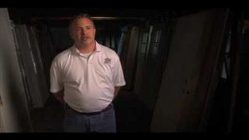A Florida attorney who has built a practice around representing DUI defendants is trying out a different seat in the courtroom.
The lawyer woke up one morning to find that he had an $18,930 tab on his credit card (gulp!) from a single night at the strip club. Even worse, he was “temporarily unconscious” and didn’t remember parts of the evening. So he’s taking the club owners to court to demand a refund, saying that they “knew, or should have known, of plaintiff’s intoxicated state, having caused it.”
So get blackout drunk, run up an exorbitant bar tab on booze and strippers, and then have the audacity to blame somebody else. There’s only one word for it – ridiculous! But is it the most ridiculous lawsuit we’ve seen this month? Or is it one of these:
- Widow of cop-killer files lawsuit; wants payment for his death in shootout
- West Virginia man sues employer after bitten by spider while at work
- Mother sues McDonald’s for including toys in kid’s meals
- “Wet Floor” sign falls on woman’s foot; she sues for mental anguish
Go to the poll to vote for your favorite.























